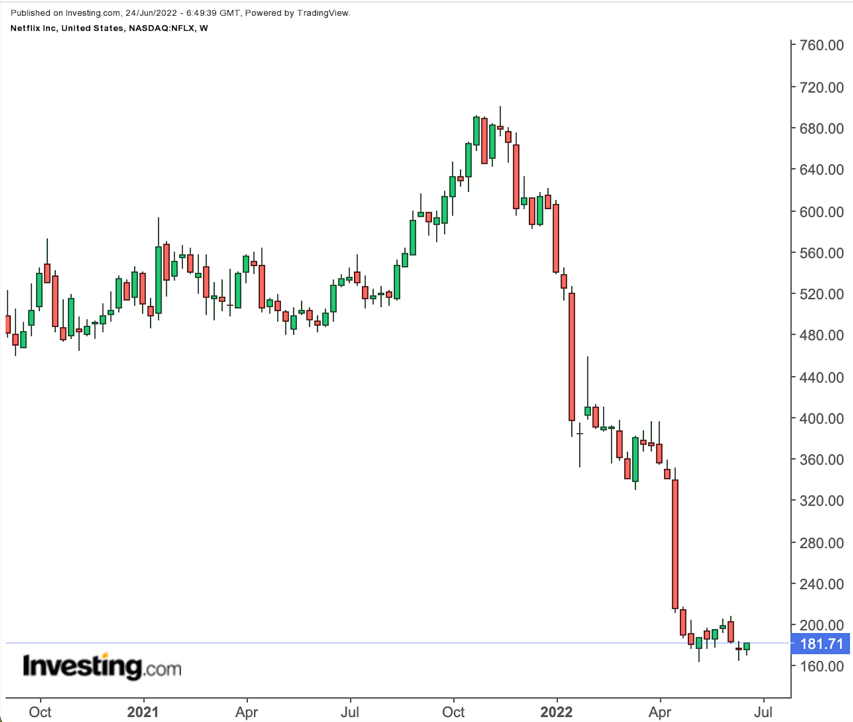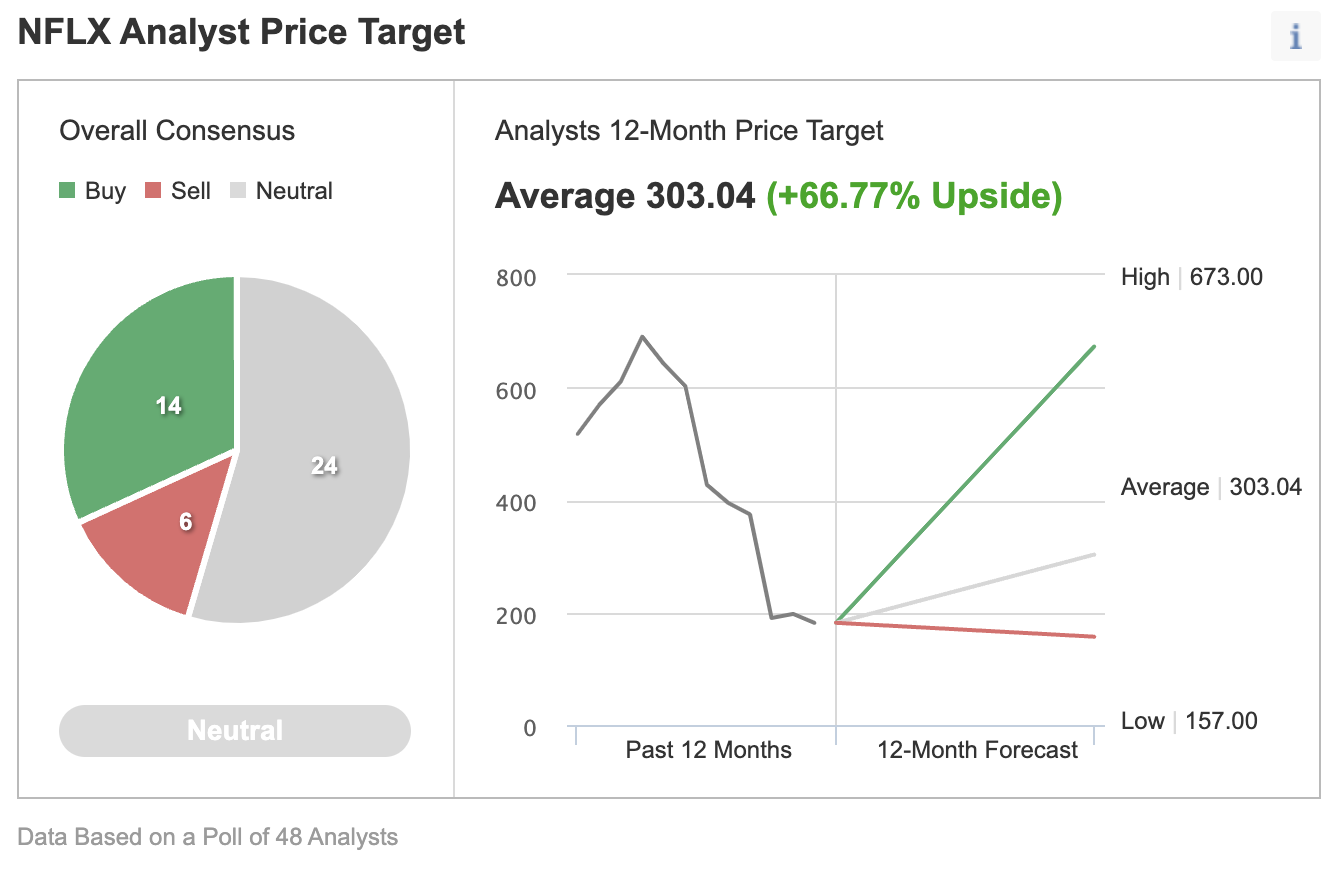- The plunge in Netflix share price has erased $220 billion in market cap
- As the business dynamics change, investors question the size of the total addressable streaming market
- Wall Street analysts don’t see any near-term turnaround in the company’s fortunes
- If you’re interested in upgrading your search for new investing ideas, check out InvestingPro+
Global streaming giant Netflix (NASDAQ:NFLX) is currently in the midst of a perfect storm. Amid subscriber losses and a risk-off broad market environment, the pandemic-era darling has become the worst-performing stock in the S&P 500 this year, shedding almost 70% of its value. NFLX closed Thursday at $181.71.
The plunge in the world’s largest streaming service has been so swift that it erased more than $220 billion in California-based Netflix’s market capitalization within six months.
Yet, there is little hope of a turnaround anytime soon.
Netflix told investors in its April earnings call that the eye-popping growth it experienced during the pandemic had abruptly halted. Its service lost 200,000 customers in the first quarter of 2022, with the company expecting to lose another 2 million subscribers this quarter.
This debacle comes after two years of unprecedented growth, primarily due to the stay-at-home environment and the worldwide COVID-driven closing of movie theaters. Netflix picked up more than 36 million customers in 2020 and 18.2 million in 2021.
But as the business dynamics changed, investors questioned the size of the total addressable streaming market—a number Netflix had previously said could be as high as 800 million. Netflix currently has about 222 million global subscribers by the end of Q1.
Analysts on Wall Street don’t see a near-term turnaround in the company’s fortunes, especially when the risk of a recession is growing and consumers are looking to cut their spending amid a four-decade high inflation rate.
More Subscriber Losses
The bearish spell in Netflix stock will persist if the widely anticipated recession hits the economy, according to a research note by the Bank of America. The bank says such a scenario could produce more subscriber losses or limit the company’s pricing power.
The note adds:
“Streaming could be sticky in a recession, but platforms will see recurring cancellations and resubscriptions coinciding with scheduled releases of original content, particularly among the lower-income user base.”
Other analysts seem to be sharing this view. In an Investing.com poll of 48 analysts, 24 rate the stock neutral, 6 recommend selling it, and another 14 rate it a buy. 
Benchmark, while downgrading Netflix to sell from hold, said in a recent note that it’s “skeptical” of a sustained Netflix recovery.
“We have made mild estimate revisions off continued U.S. dollar strength, including vs. the yen and European currencies, that is likely not fully reflected in prior 2Q22 guidance or analyst consensus. We are skeptical on any sustained Netflix stock recovery even as bulls are (or were) talking up its 14.1x forward P/E off 2023 consensus estimates.”
On its part, the streaming giant is trying hard to win investors’ confidence. In April, Netflix CEO Mike Hastings announced that the company is exploring an ad-supported version of its platform to boost its sales and subscriptions. In recent weeks it has explored a range of partnerships that could help it bring those plans to fruition.
The company also launched its gaming service late last year. To keep growing its games offering, Netflix has acquired video game development studios recently to produce games tied to its popular shows.
Needham, which reiterated Netflix as hold in a recent note, said the streaming giant would not be a “winner” even after adding an ad-based pricing tier. Its note says:
“Even after adding an ad-driven tier, NFLX will NOT be a streaming wars winner (our view) unless it adds sports and news content (to lower customer acquisition costs), buys a deep film and TV library (to hold on to subs longer), and enhances its bundling opportunities.”
Bottom Line
Netflix seems to be on a long road to recovery after producing remarkable growth during the past decade. There is considerable uncertainty about the success of its future plans while the competitive environment still grows increasingly challenging.
***
Looking to get up to speed on your next idea? With InvestingPro+ you can find
- Any company’s financials for the last 10 years
- Financial health scores for profitability, growth, and more
- A fair value calculated from dozens of financial models
- Quick comparison to the company’s peers
- Fundamental and performance charts
And a lot more. Get all the key data fast so you can make an informed decision, with InvestingPro+. Learn More »
